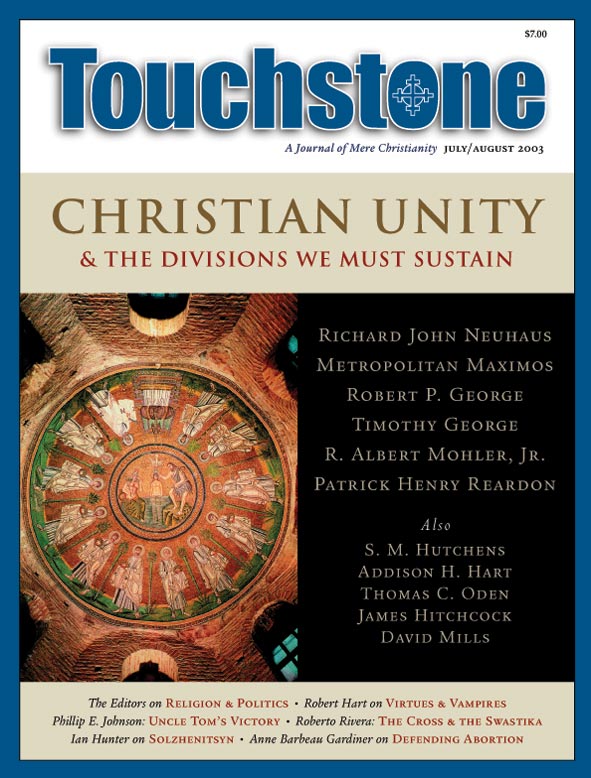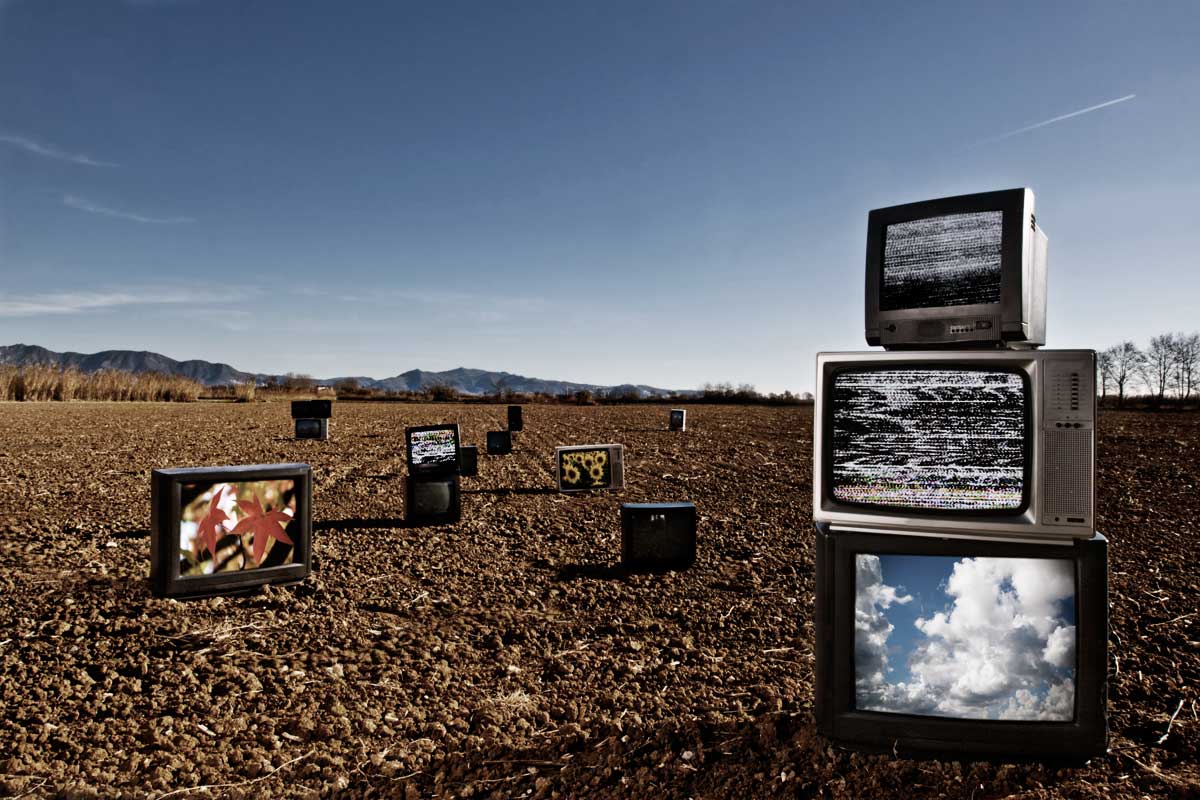Turning Our Hearts to the Cross
A Response to Metropolitan Maximos
by Addison H. Hart
I regard it an honor to be asked to respond to the address of Metropolitan Maximos, a hierarch who is widely respected for both his graciousness and his learning.
I must begin by stating that on most of the points made and issues raised by Metropolitan Maximos I find myself in full agreement, especially in his conviction that a return to the Fathers is imperative for Christians of all stripes, and also in his concern for the contemporary “culture wars” in which we find ourselves engaged. Nonetheless, I think it important to offer two points of difference with comments made in the otherwise fine talk we have heard.
The Understanding of Grace
My first disagreement has to do with the persistent Eastern Orthodox misunderstanding of what the Western Church means by “Created Grace.” Admittedly, this is an ambiguous term, open to misunderstanding, so I cannot fault Metropolitan Maximos for unintentionally misrepresenting the concept when he stated the following:
Unfortunately, there is a great difference in the understanding of this mystery of grace between the Eastern and Western Churches. In the Eastern Church, in following the Fathers, theologians understand “grace” as “relation”. . . .
In contrast, the West speaks of grace in “essentialistic” terms, that is, a “created reality,” when it speaks of “created grace” (gratia creata), a reality allegedly created by God to connect human and divine reality. The Christian East finds it impossible to understand grace in any way other than relational; it is a “relational entity” which enables humans to participate in the life of God. The image used by the Greek Fathers (such as St. Basil) is that of iron in the fire: in the same way in which iron gains the properties of the fire while in it, man, in the life of grace, acquires the spiritual qualities of God’s Holy Spirit in whom he lives.
Now, the irony is that what Metropolitan Maximos here contends to be the uniquely Eastern understanding of grace, “greatly different” from and “in contrast” to the Western teaching, is exactly the meaning of the Western doctrine of “Created Grace” (gratia creata). There is no great difference or contrast on this point, only a difference of language (Latin) and theological terminology (what we would call “Thomistic” or “Scholastic”). When it comes to the understanding of grace itself, Western theologians are in virtual agreement with their Eastern counterparts—employing, in fact, the same analogies from the Fathers (e.g., that of the iron in the fire). In addition, no Western theologian worth his salt would ever regard Created Grace as anything other than essentially “relational.”
The term, though, requires some explaining. “Created Grace” is also called “Habitual Grace” (from habitus—an endowment) and “Sanctifying Grace.” The central theological issue is one with which we are all familiar: How do we, who are creatures, become (as 2 Pet. 1:4 puts it) “partakers of the divine nature”? When King Charles I proclaimed from the scaffold that “a subject and a sovereign are clean different things,” he was tragically mistaken. But when we finite mortals speak of God—infinite, immortal, invisible, incomprehensible, uncreated—we are speaking of One clean different from us. Yet, we are told, it is his intention that we human creatures, through Christ, are meant to participate in the inner life of the Holy Trinity. How can such a deification of human nature be accomplished? In what terms can our human minds even grasp it? Obviously, this is a mystery to human thought. Still, some definitions and distinctions must be made, precisely to protect the mystery and revelation from real error.
The Western Church has used the phrase “Beatific Vision” to express the ultimate joy of heaven and deification, based on the apostolic witness of 1 John 3:2—“Beloved, we are God’s children now; it does not yet appear what we shall be, but we know that when he appears we shall be like him, for we shall see him as he is.” In this foundational testimony, we should note three important truths.
Addison H. Hart is retired from active ministry as parish priest and university chaplain. He is the author of Knowing Darkness: On Skepticism, Melancholy, Friendship, and God and The Yoke of Jesus: A School for the Soul in Solitude (both from Eerdmans). His forthcoming book is a study of the Sermon on the Mount. He lives and writes in Norheimsund, Norway.
subscription options
Order
Print/Online Subscription

Get six issues (one year) of Touchstone PLUS full online access including pdf downloads for only $39.95. That's only $3.34 per month!
Order
Online Only
Subscription

Get a one-year full-access subscription to the Touchstone online archives for only $19.95. That's only $1.66 per month!
bulk subscriptions
Order Touchstone subscriptions in bulk and save $10 per sub! Each subscription includes 6 issues of Touchstone plus full online access to touchstonemag.com—including archives, videos, and pdf downloads of recent issues for only $29.95 each! Great for churches or study groups.
Transactions will be processed on a secure server.
more from the online archives

37.5—Sept/Oct 2024
Why Law Schools Can't Teach Law
A sidebar to How Law Lost Its Way by Adam MacLeod
calling all readers
Please Donate
"There are magazines worth reading but few worth saving . . . Touchstone is just such a magazine."
—Alice von Hildebrand
"Here we do not concede one square millimeter of territory to falsehood, folly, contemporary sentimentality, or fashion. We speak the truth, and let God be our judge. . . . Touchstone is the one committedly Christian conservative journal."
—Anthony Esolen, Touchstone senior editor









